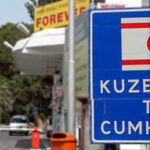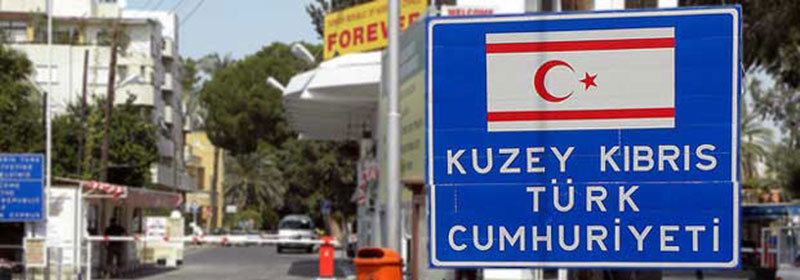Triumph of Turkish Nationalists in Northern Cyprus: Original Sin, from the War in Makarios to the Gas Game By Americo Mascarucci *


Goodbye reunification of Cyprus. The victory of the nationalists in the presidential elections of Northern Cyprus, a self-proclaimed Turkish republic not recognized by the international community, effectively puts an end to any attempt to reunite with the Greek Cypriot side. The new president, Ersin Tatan, is closely linked with the Ankara government and with President Recep Erdogan in particular, and is opposed to reunification. Erdogan has therefore won his battle, eliminating the outgoing pro-European president Akinci. Now the Turkish "sultan" will have free rein with respect to his hegemonic and commercial designs.
A step back: the Cypriot crisis was born in 1974, when a coup by Greek Cypriot nationalists supported by the regime of colonels in power in Athens ended the government led by the Orthodox Archbishop Makarios against the annexation of Cyprus to Greece. The military coup was also supported by the United States eager to get rid of Makarios guilty of declaring himself neutral in the Cold War, maintaining relations of non-hostility with the Soviets. The coup d'état and the conquest of power by the Greek Cypriot nationalists offered Turkey the pretext for intervening militarily by occupying the northern part of Cyprus, with the need to protect the rights and safety of the Turkish Cypriot minority. The military intervention of Turkey took the Greek regime by surprise, which from the annexation of Cyprus hoped to draw the lifeblood for its strengthening.
The Turkish attack, on the contrary, threw the colonels' plans into the air, the regime weakened, to the point that it would soon fall. It did not surprise the US who had taken into account the reaction of the Turks. But the Americans cared little or nothing about Cyprus being split in two, as their goal was to get Makarios out of the way. The fact that both Greece and Turkey were member countries of the Atlantic Alliance offered them the greatest guarantees. If Makarios had laboriously managed to create the conditions for a peaceful coexistence between the two communities, it became impossible to mend the rift following the coup, despite the fall of the colonels put an end to the project of the annexation of Cyprus to Greece. The Turks self-proclaimed the republic of Northern Cyprus against the contrary opinion of the United Nations which recognized the Greek-Cypriot government as the only legitimate government that was established after new elections.
The problem of the reunification of Cyprus has been at the center of negotiations for Turkey's entry into Europe for years. On the island, the Turkish community has long been divided between pro-pacification with the Greek-Cypriot one and nationalists, who instead decided to keep their government on the northern part.
In recent years, the clash between Ankara and the Turkish Cypriot government led by moderate elements in favor of dialogue with Europe has become very strong. The project of reunification that Erdogan has always opposed, even more so since the gas war broke out.
In July, the Greek Cypriot government ratified the agreement concerning the construction of the Eastmed gas pipeline. The project involves the construction of a network of gas pipelines capable of transporting gas from the eastern Mediterranean to Europe in agreement with Greece, Israel and Egypt. A project that would allow Europe to free itself from its dependence on Russia and the regions of the Caucasus in the energy field. It is clear that the Cyprus gas pipeline project is viewed with great hostility by Moscow itself, which fears a dangerous competitor. Eastmed will depart from the Israeli natural gas reserves of the Levant Sea basin, at the Leviathan field, to head towards Cyprus, in the Aphrodite Field, and then finish in Greece through Crete. From Athens, the gas will then reach Italy through another gas pipeline. This project, according to estimates, would have a value of about 6 billion euros and, within 7 years, should guarantee 10% of the European Union's natural gas needs.
But here comes Turkey, determined to upset the Greek-Israeli plans. In fact, Erdogan intends to field an alternative project with reduced costs.
The project studied by Ankara includes an underwater pipeline capable of connecting Cyprus to Anatolia 80 kilometers long, suspended at a depth of 250 meters using part of the network that allows drinking water to be transported from Turkey to Cyprus. The pipeline would join the existing Turkish network supplied by TANAP and TurkStream.
The Turkish project would have very low costs compared to the Greek-Israeli one, a fact that would also allow the European market to buy gas from Turkey at much lower and more contained prices.
It therefore appears evident that Erdogan has every interest in having the Turkish Cypriot government aligned with his positions and interests. Even more so after Putin's intervention who offered to mediate between Greece and Turkey to avoid an escalation of the conflict between the two countries linked to the exploitation of hydrocarbons in the eastern Mediterranean. Right that Turkey claims but which Greece disputes on the basis that the Republic of Northern Cyprus is illegal, not being recognized by the international community. However, Russia seemed to come into play more than as a mediator as an interested party, and the feeling is that in reality it wants to support Erdogan's aims. With which he also plans to conclude a commercial agreement on the sale of gas.
The Eastmed gas pipeline represents a dangerous competitor on the European market and its construction seems inspired precisely by the desire to favor Europe in breaking its energy dependence on the Russians. Eastmed is therefore a danger both for Moscow and for Ankara.
In the background there is also the Libyan question, always closely linked to the gas game. In fact, Eastmed needs Libyan clearance to be able to get the gas pipeline to Italy and that is why Erdogan is doing everything to defend the government of his Muslim brother Al Serraj from the military actions of rival General Haftar. And Libya is another potential gas producer thanks to the existence in its seas of two fields, Reef1 and Reef2, which both Turkey and Russia look to thanks to the abundance of their respective reserves.
With the victory of the Turkish nationalists in Northern Cyprus, Erdogan will now be able to manage the energy game without obstacles and without the risk of a government that is not aligned or too sensitive to the Greek Cypriot sirens. And the road to the reunification of Cyprus can now be said to be completely blocked as the utopian dream of having the Turks in the EU. With an increasingly dominant role of Moscow as an alternative power compared to what appears to all intents and purposes an attempt at neo-Ottoman expansionism by Erdogan. Alternative and complementary at the same time, since, from Libya to Syria to Azerbaijan, it is Putin and Erdogan who divide the spheres of influence and share the cake. With the EU as a spectator and to suffer the blackmail of Ankara which, with the lever of the invasion of refugees, is able to dictate its own agenda. Other than joining the EU. What interest would Turkey now have in being part of an increasingly weak and irrelevant Europe on the international stage?
* Journalist at Lo Speciale News

Thanks to our Telegram channel you can stay updated on the publication of new articles of Economic Scenarios.
The article Triumph of the Turkish nationalists in Northern Cyprus: The original sin, from the war in Makarios to the gas game By Americo Mascarucci * comes from ScenariEconomici.it .
This is a machine translation of a post published on Scenari Economici at the URL https://scenarieconomici.it/trionfo-dei-nazionalisti-turchi-a-cipro-nord-il-peccato-originale-dalla-guerra-a-makarios-alla-partita-del-gas-di-americo-mascarucci/ on Wed, 21 Oct 2020 20:16:37 +0000.
